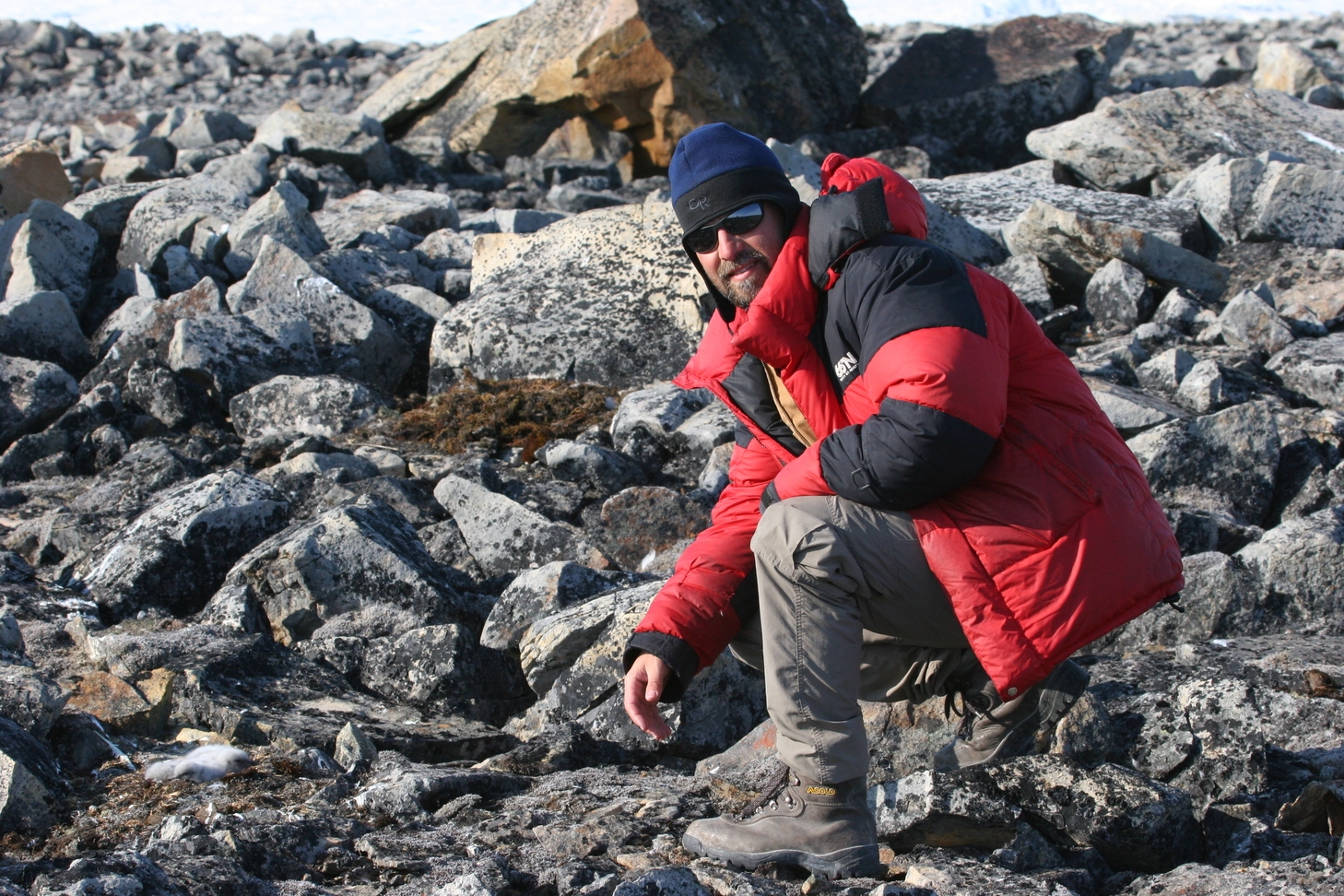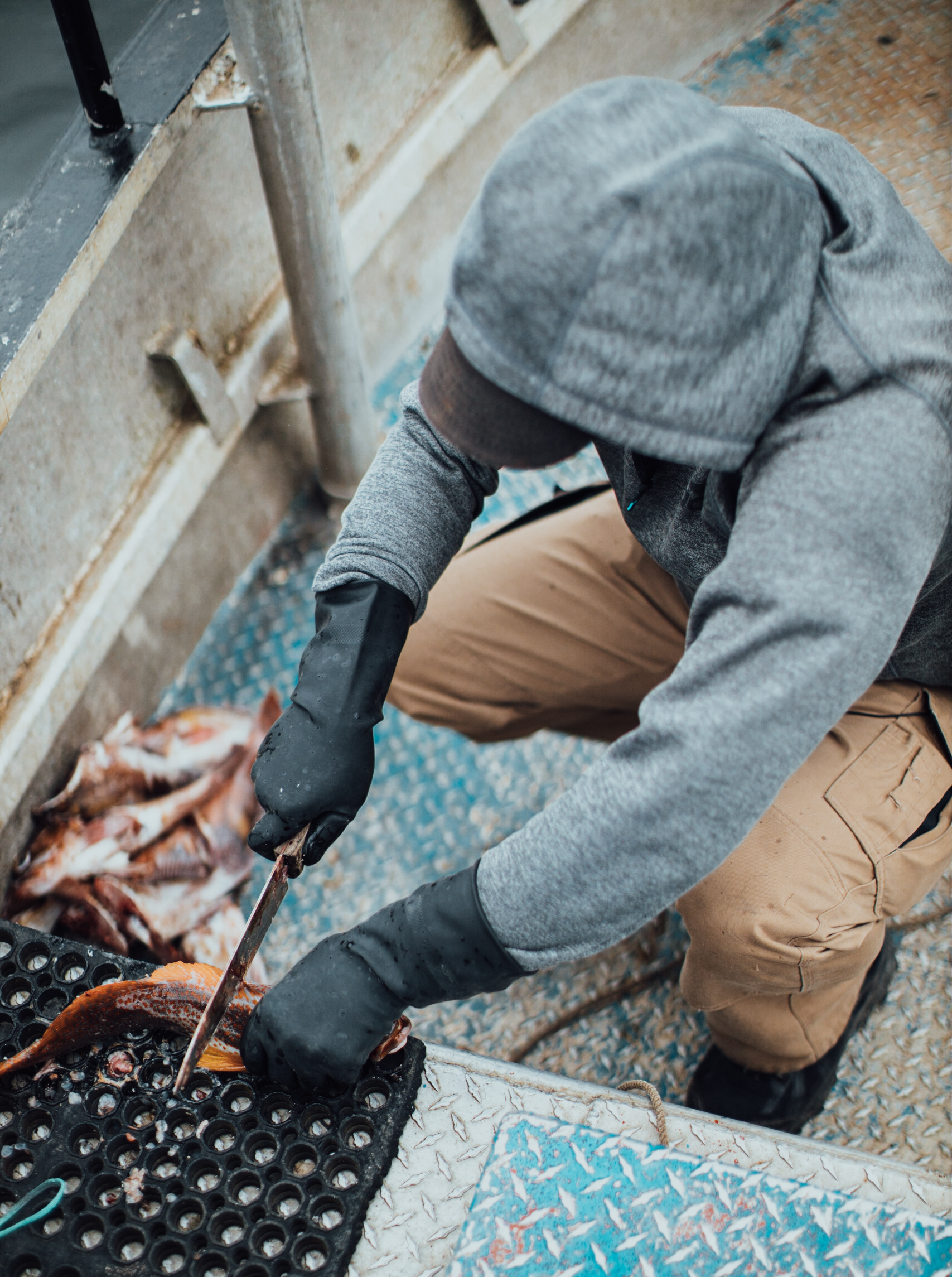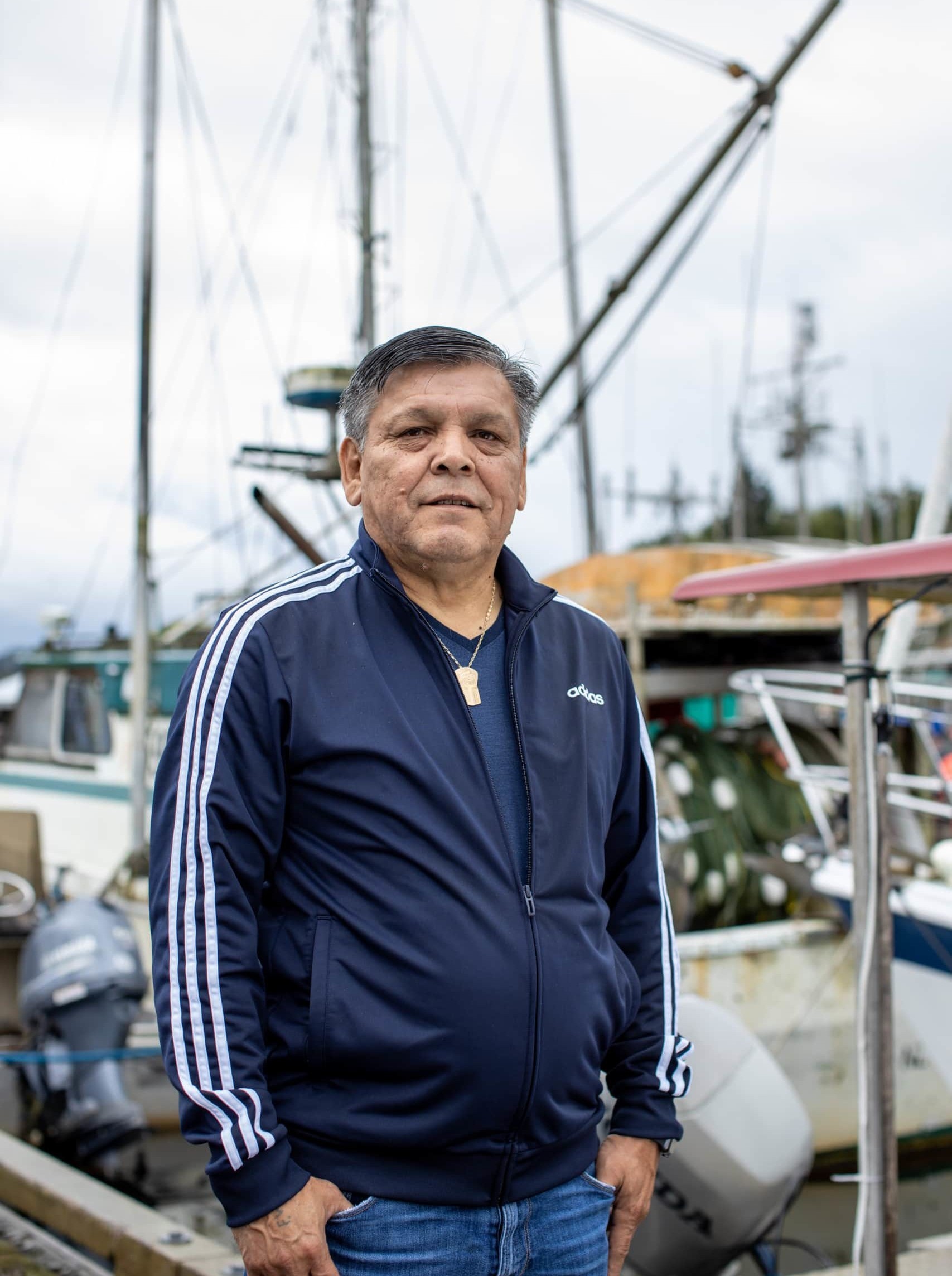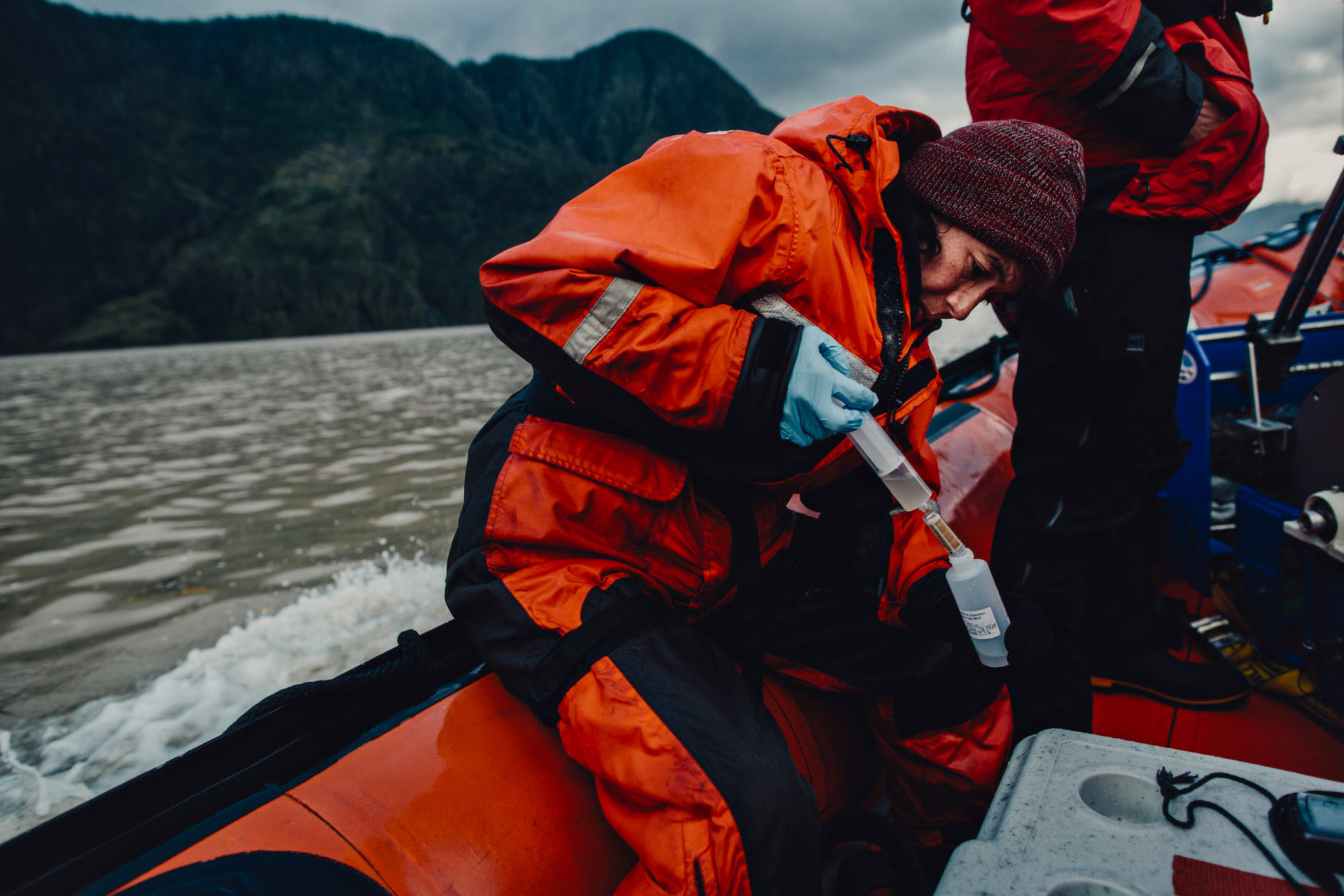
‘Afraid of the water’? Life in a city that dumps billions of litres of raw sewage into lakes and rivers
10 billion litres of sewage are dumped into Winnipeg’s lakes and rivers each year. Some...
Partway through a training trip across the Arctic this week, Trevor Bell had to cut his travel short.
Northern communities have been shutting down all non-essential travel to protect themselves from COVID-19, and Cambridge Bay, where he was headed from Gjoa Haven, was no exception. The Newfoundland-based researcher and his colleagues came home.
But Bell’s research in Gjoa Haven and 16 other communities can carry on. The SmartICE program, a system that helps Arctic communities monitor the sea ice to ensure safer travel, depends not on an influx of researchers from the south but rather on the community members themselves.
“That’s the benefit for us, of being able to continue the monitoring because of the investment in communities — empowering them to be the researchers themselves,” he says.
Researchers all across Canada are scrambling to decide what to do as the summer field season approaches. Many have already cancelled planned trips, fearful of bringing the novel coronavirus to vulnerable communities.
“I just couldn’t forgive myself for that,” says Mark Mallory, an environmental scientist who studies birds at Acadia University. “No one from the south should be going north to do research this year.”
Much of Mallory’s work will be put on hold this year, especially the work that is dangerous — like scaling cliffs to look at bird nests — or work that requires specialized training or equipment.
But there are research programs across the country that are set up, whether by design or not, to be resilient in the face of even a global pandemic, thanks to their reliance on the people who live there.

Scientist Mark Mallory, a Canada Research Chair on coastal wetland ecosystems, has been studying High Arctic gulls since 2000, and was the lead on building the Nasaruvaalik Island research station. Photo: High Arctic Gull Research Group
The community of Bella Bella, on B.C.’s central coast, has been through pandemics before, and it has survived before.
“The Heiltsuk people, our population dwindled with the flu epidemic,” says Heiltsuk Chief Councillor Marilyn Slett. “We’re doing everything we can to protect our community.”
Especially given the high risk of virus to Elders, Slett is not taking any chances. She has asked residents to stay put, and asked band members who are based outside the community to stay away for now. All meetings, even within the community, are via teleconference. Flights will be shutting down on Tuesday.
“Absolutely nobody’s going to be coming in,” says Kelly Brown, the director of the First Nation’s resource management department.

Jordan Wilson, a Heiltsuk Coastal Guardian Watchman, aboard one of the nation’s monitoring vessels. Photo: Louise Whitehouse / The Narwhal

Kelly Brown is the director of the Heiltsuk Integrated Resource Management Department. Photo: Louise Whitehouse / The Narwhal
Heiltsuk traditional territory happens to be a hotbed of ecological research, with a major research station, the Hakai Institute’s Calvert Island Ecological Observatory, situated just south of Bella Bella.
The station is usually home to dozens of scientists throughout the summer months, many of whom are working on long-term environmental monitoring projects, the kind of science that depends in part on regular, repeated trips to the same field sites. Much of that work will be put on hold, and the usual trips to and from Bella Bella will not be happening out of concern for the community’s health.
But the Heiltsuk Nation’s own ecological monitoring and research, conducted by its Guardian Watchmen, will continue. The herring spawn, the biggest annual natural event on the West Coast, is expected to begin any day. The Guardian Watchmen will be there to observe and help the community’s harvesters.
“We’re carrying on,” Brown says.
Advancements in science and communications will make more remote research possible during the coronavirus pandemic than it would have been before.
Scientists in the south can teach, and in many cases have already taught, collection techniques to their remote collaborators in real time via video conferencing (when connection speeds allow). Data can be transmitted wirelessly from sensors via satellite to researchers working from home. And some simple fieldwork can lead to entire research programs down south.
Environmental DNA is one of those techniques; it involves taking a sample of water using a specialized but simple procedure, packaging the sample and sending it to a lab.
That sample can yield a wealth of knowledge about what organisms are living in or around that body of water — everything from fish to algae to whales, to even terrestrial animals that happen to have passed through recently.

Scientist Amy Tabata collects a water sample for environmental DNA analysis in the Broughton Archipelago in B.C. in 2018. Photo: Taylor Roades / C3
That will allow some researchers to keep doing their work, from a distance, while also creating employment for people who may need it during the pandemic.
Mallory is quick to add that it doesn’t mean all research can continue as normal — “I’m not in any way shape or form saying that everything can be done without people coming up from the south,” he says — but the researchers who rely heavily on communities could see their work less disrupted than those who rely on accessing the land themselves.
Taken even further, Mallory says the disruptions from coronavirus could present a new incentive to find ways to work with communities from afar.
“Here we’ve got an opportunity where we can show in a concrete way that when there’s a real impediment to what we consider normal operations, in fact, we can make this work to do some science,” he says.
Andrew Derocher’s research can’t be done from a distance. He is a polar bear biologist, and his is the kind of helicopter, tranquilizer and GPS collar-heavy work that doesn’t easily lend itself to training community members to take over, and it usually takes place a long distance from the nearest community.
Coming off a conference call with other northern researchers, he says there is a lot of work like his that will simply have to forego this season’s data.
“We’ve just lost a year,” Derocher says. For him, four decades into his career and one of the world’s preeminent polar bear scientists, he can weather the loss. It’s his graduate students he worries about.
“That’s a huge, huge loss, it affects the quality of the research you can do, the conclusions you can make from it,” he says. Some of that loss can be made up for with statistical methods; after all, remote Arctic research has always presented its challenges, just usually in the form of weather and ice conditions.
Update March 21, 2020 9:08 p.m. PST: This article was updated to reflect that researcher Trevor Bell was not asked to leave the community of Goja Haven, but was rather asked to rethink his visit to Cambridge Bay, where he was planning on traveling after his time in Goja Haven.
Get the inside scoop on The Narwhal’s environment and climate reporting by signing up for our free newsletter. On a warm September evening nearly 15...
Continue reading
10 billion litres of sewage are dumped into Winnipeg’s lakes and rivers each year. Some...

Court sides with Xatśūll First Nation, temporarily halting Mount Polley mine waste expansion

Break out the champagne: Emma’s storied life and leadership in journalism has earned her the...
